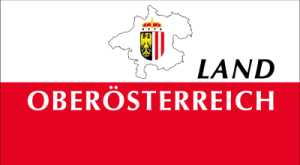Data protection declaration
Introduction and overview
We have written this data protection declaration (version 01/27/2023-112398145) in order to explain to you, in accordance with the requirements of the General Data Protection Regulation (EU) 2016/679 and applicable national laws, which personal data (data for short) we as the controller - and that of Processors commissioned by us (e.g. providers) – process, will process in the future and what legal options you have. The terms used are to be understood as gender-neutral. In short: We inform you comprehensively about the data we process about you.
Privacy policies usually sound very technical and use legal terms. This data protection declaration, however, is intended to describe the most important things to you as simply and transparently as possible. To the extent that it promotes transparency, technical terms are explained in a reader-friendly manner, links to further information are provided and graphics are used. We thereby inform you in clear and simple language that we only process personal data as part of our business activities if there is a corresponding legal basis. This is certainly not possible if you make as brief, unclear and legal-technical statements as possible, as are often standard on the Internet when it comes to data protection. I hope you find the following explanations interesting and informative and perhaps there is one or two pieces of information that you didn't know before. If you still have questions, we would like to ask you to contact the responsible body named below or in the legal notice, follow the existing links and look at further information on third-party sites. You can of course also find our contact details in the legal notice.
Scope of application
This data protection declaration applies to all personal data processed by us in the company and to all personal data that companies commissioned by us (processors) process. By personal data we mean information within the meaning of Article 4 No. 1 GDPR such as a person's name, email address and postal address. The processing of personal data ensures that we can offer and bill our services and products, whether online or offline. The scope of this data protection declaration includes:
- all online presences (websites, online shops) that we operate
- Social media appearances and email communication
- mobile apps for smartphones and other devices
In short: The data protection declaration applies to all areas in which personal data is processed in a structured manner within the company via the channels mentioned. If we enter into legal relationships with you outside of these channels, we will inform you separately if necessary..
Legal basis
In the following data protection declaration we provide you with transparent information about the legal principles and regulations, i.e. the legal bases of the General Data Protection Regulation, which enable us to process personal data. As far as EU law is concerned, we refer to REGULATION (EU) 2016/679 OF THE EUROPEAN PARLIAMENT AND OF THE COUNCIL of April 27, 2016. You can of course access this EU General Data Protection Regulation online on EUR-Lex, the access to the EU -Law, read at https://eur-lex.europa.eu/legal-content/DE/ALL/?uri=celex%3A32016R0679.
We only process your data if at least one of the following conditions applies:
- Consent (Article 6 paragraph 1 lit. a GDPR): You have given us your consent to process data for a specific purpose. An example would be saving the data you entered on a contact form.
- Contract (Article 6 Paragraph 1 Letter b GDPR): In order to fulfill a contract or pre-contractual obligations with you, we process your data. For example, if we conclude a purchase contract with you, we need personal information in advance.
- Legal obligation (Article 6 paragraph 1 lit. c GDPR): If we are subject to a legal obligation, we process your data. For example, we are legally obliged to keep invoices for accounting purposes. These usually contain personal data.
- Legitimate interests (Article 6 paragraph 1 lit. f GDPR): In the case of legitimate interests that do not restrict your fundamental rights, we reserve the right to process personal data. For example, we need to process certain data in order to operate our website securely and economically efficiently. This processing is therefore a legitimate interest.
Other conditions such as the perception of recordings in the public interest and the exercise of public authority as well as the protection of vital interests generally do not apply to us. If such a legal basis is relevant, it will be shown in the appropriate place. In addition to the EU regulation, national laws also apply:
- In Austria this is the Federal Law for the Protection of Natural Persons with regard to the Processing of Personal Data (Data Protection Act), or DSG for short.
- In Germany there is the Federal Data Protection Act, or BDSG for short, applies in Germany..
If other regional or national laws apply, we will inform you about them in the following sections.
Contact details of the responsible person
If you have any questions about data protection or the processing of personal data, you will find the contact details of the responsible person or body below:
M2 Consulting GmbH
Karling 97/2
4081 Hartkirchen
Austria
E-Mail:
Phone: +436642005455
Imprint: https://www.circular-print.eu/en/login
Storage period
Our general criterion is that we only store personal data for as long as is absolutely necessary to provide our services and products. This means that we delete personal data as soon as the reason for data processing no longer exists. In some cases, we are legally obliged to store certain data even after the original purpose has ceased, for example for accounting purposes. If you wish to have your data deleted or revoke your consent to data processing, the data will be deleted as quickly as possible and unless there is an obligation to store it. We will inform you below about the specific duration of the respective data processing, provided we have further information.
Rights under the General Data Protection Regulation
In accordance with Articles 13, 14 GDPR, we inform you of the following rights to which you are entitled so that data is processed fairly and transparently:
- According to Article 15 GDPR, you have a right to information as to whether we are processing your data. If this is the case, you have the right to receive a copy of the data and to know the following information:
- for what purpose we carry out the processing;
- the categories, i.e. the types of data, that are processed;
- who receives this data and, if the data is transferred to third countries, how security can be guaranteed;
- how long the data is stored;
- the existence of the right to rectification, deletion or restriction of processing and the right to object to processing;
- that you can complain to a supervisory authority (links to these authorities can be found below);
- the origin of the data if we did not collect it from you;
- whether profiling is carried out, i.e. whether data is automatically evaluated in order to create a personal profile for you.
- According to Article 16 GDPR, you have a right to correction of data, which means that we must correct data if you find errors.
- According to Article 17 GDPR, you have the right to deletion (“right to be forgotten”), which specifically means that you can request the deletion of your data.
- According to Article 18 GDPR, you have the right to restrict processing, which means that we are only allowed to store the data but not use it any further.
- According to Article 20 GDPR, you have the right to data portability, which means that upon request we will provide you with your data in a common format.
- According to Article 21 GDPR, you have a right to object, which, once enforced, will result in a change to the processing.
- If the processing of your data is based on Article 6 Paragraph 1 Letter e (public interest, exercise of official authority) or Article 6 Paragraph 1 Letter f (legitimate interest), you can object to the processing. We will then check as quickly as possible whether we can legally comply with this objection.
- If data is used to conduct direct advertising, you can object to this type of data processing at any time. We may then no longer use your data for direct marketing.
- If data is used to carry out profiling, you can object to this type of data processing at any time. We are then no longer allowed to use your data for profiling.
- According to Article 22 GDPR, you may have the right not to be subject to a decision based solely on automated processing (e.g. profiling).
- According to Article 77 GDPR, you have the right to lodge a complaint. This means that you can complain to the data protection authority at any time if you believe that the processing of personal data violates the GDPR.
In short: you have rights – do not hesitate to contact the responsible body listed above!
If you believe that the processing of your data violates data protection law or your data protection rights have been violated in any other way, you can complain to the supervisory authority. For Austria, this is the data protection authority, whose website you can find at https://www.dsb.gv.at/. In Germany there is a data protection officer for each federal state. For more information, you can contact the Federal Commissioner for Data Protection and Freedom of Information (BfDI). The following local data protection authority is responsible for our company:
Austria data protection authority
Head: Mag. Dr. Andrea Jelinek
Address: Barichgasse 40-42, 1030 Wien
Telefone number: +43 1 52 152-0
Email address:
Website: https://www.dsb.gv.at/
Order processing agreement (AVV)
In this section we would like to explain to you what a data processing agreement is and why it is needed. Because the word “order processing agreement” is quite a tongue twister, we will often only use the acronym AVV here in the text. Like most companies, we do not work alone, but also use the services of other companies or individuals. Due to the involvement of different companies or service providers, we may pass on personal data for processing. These partners then act as processors with whom we conclude a contract, the so-called data processing agreement (AVV). The most important thing for you to know is that the processing of your personal data takes place exclusively according to our instructions and must be regulated by the AVV.
Who are processors?
As a company and website owner, we are responsible for all data that we process from you. In addition to those responsible, there can also be so-called processors. This includes every company or person who processes personal data on our behalf. More specifically and according to the GDPR definition: any natural or legal person, authority, institution or other body that processes personal data on our behalf is considered a processor. Processors can therefore be service providers such as hosting or cloud providers, payment or newsletter providers or large companies such as Google or Microsoft.
To make the terminology easier to understand, here is an overview of the three roles in the GDPR:
Data subject (you as a customer or interested party) → Responsible party (we as a company and client) → Processor (service provider such as web host or cloud provider)
Content of an order processing contract
As already mentioned above, we have concluded an AVV with our partners who act as processors. Above all, this states that the processor processes the data to be processed exclusively in accordance with the GDPR. The contract must be concluded in writing, although in this context the electronic contract conclusion is also considered “written”. The processing of personal data only takes place on the basis of the contract. The contract must contain the following:
- Binding to us as those responsible
- Obligations and rights of the person responsible
- Categories of data subjects
- Type of personal data
- Type and purpose of data processing
- Subject and duration of data processing
- Place of data processing
The contract also contains all of the processor’s obligations. The most important duties are:
- To ensure data security measures
- to take possible technical and organizational measures to protect the rights of the data subject
- to maintain a data processing directory
- to cooperate with the data protection supervisory authority upon request
- carry out a risk analysis in relation to the personal data received
- Sub-processors may only be commissioned with the written consent of the person responsible
You can see what such an AVV looks like in concrete terms at https://www.wko.at/service/wirtschaftsrecht-gewerberecht/eu-dsgvo-mustervertrag-vertragsprocessing.html. A sample contract is presented here.
Cookies
| Cookies summary 👥 Affected: Visitors to the website 🤝 Purpose: depending on the respective cookie. You can find more details about this below or from the manufacturer of the software that sets the cookie. 📓 Data processed: Depending on the cookie used. You can find more details about this below or from the manufacturer of the software that sets the cookie. 📅 Storage period: depending on the respective cookie, can vary from hours to years ⚖️ Legal basis: Art. 6 Para. 1 lit. a GDPR (consent), Art. 6 Para. 1 lit. f GDPR (legitimate interests) |
What are cookies?
Our website uses HTTP cookies to store user-specific data. Below we explain what cookies are and why they are used so that you can better understand the following privacy policy. Whenever you surf the Internet, you use a browser. Well-known browsers include Chrome, Safari, Firefox, Internet Explorer and Microsoft Edge. Most websites store small text files in your browser. These files are called cookies. One thing cannot be denied: Cookies are really useful little helpers. Almost all websites use cookies. To be more precise, they are HTTP cookies, as there are also other cookies for other areas of application. HTTP cookies are small files that our website stores on your computer. These cookie files are automatically stored in the cookie folder, the “brain” of your browser. A cookie consists of a name and a value. When defining a cookie, one or more attributes must also be specified. Cookies store certain user data about you, such as language or personal page settings. When you visit our site again, your browser sends the “user-related” information back to our site. Thanks to cookies, our website knows who you are and offers you the settings you are used to. In some browsers each cookie has its own file, in others, such as Firefox, all cookies are stored in a single file. The following graphic shows a possible interaction between a web browser such as: B. Chrome and the web server. The web browser requests a website and receives a cookie back from the server, which the browser uses again as soon as another page is requested.
There are both first-party cookies and third-party cookies. First-party cookies are created directly by our site, third-party cookies are created by partner websites (e.g. Google Analytics). Each cookie must be evaluated individually because each cookie stores different data. The expiry time of a cookie also varies from a few minutes to a few years. Cookies are not software programs and do not contain viruses, Trojans or other “malicious” things. Cookies also cannot access information on your PC. For example, cookie data might look like this:
Name: _ga
Value: GA1.2.1326744211.152112398145-9
Purpose: differentiation of website visitors
Expiry date: after 2 years
A browser should be able to support these minimum sizes:
- min. 4096 Bytes per cookie
- min. 50 cookies per domain
- min. 3000 cookies in total
What types of cookies are there?
The question of which cookies we use in particular depends on the services used and is clarified in the following sections of the data protection declaration. At this point we would like to briefly discuss the different types of HTTP cookies. There are 4 types of cookies:
Essential cookies
These cookies are necessary to ensure basic functions of the website. For example, these cookies are needed when a user puts a product in the shopping cart, then continues surfing on other pages and only later checks out. These cookies do not delete the shopping cart, even if the user closes their browser window.
Purposeful cookies
These cookies collect information about user behavior and whether the user receives any error messages. These cookies are also used to measure the loading time and behavior of the website on different browsers.
Targeting cookies
These cookies ensure better user experience. For example, entered locations, font sizes or form data are saved.
Advertising Cookies
These cookies are also called targeting cookies. They serve to provide the user with individually tailored advertising. This can be very practical, but also very annoying. Typically, when you first visit a website, you will be asked which of these types of cookies you would like to allow. And of course this decision is also saved in a cookie. If you want to know more about cookies and are not afraid of technical documentation, we recommend https://datatracker.ietf.org/doc/html/rfc6265, the Request for Comments from the Internet Engineering Task Force (IETF) called “HTTP State Management Mechanism” .
Purpose of processing via cookies
The purpose ultimately depends on the respective cookie. You can find more details about this below or from the manufacturer of the software that sets the cookie.
Which data is processed?
Cookies are little helpers for many different tasks. Unfortunately, it is not possible to generalize which data is stored in cookies, but we will inform you about the data processed or stored in the following data protection declaration.
Storage period of cookies
The storage period depends on the respective cookie and is further specified below. Some cookies are deleted after less than an hour, others can remain on a computer for several years. You also have an influence on the storage period. You can delete all cookies manually at any time via your browser (see also “Right to object” below). Furthermore, cookies that are based on consent will be deleted at the latest after you revoke your consent, although the legality of storage remains unaffected until then.
Right to object – how can I delete cookies?
You decide for yourself how and whether you want to use cookies. Regardless of which service or website the cookies come from, you always have the option of deleting cookies, deactivating them or only partially allowing them. For example, you can block third-party cookies but allow all other cookies. If you would like to find out which cookies have been stored in your browser, if you want to change or delete cookie settings, you can do this in your browser settings:
Chrome: Delete, enable and manage cookies in Chrome
Safari: Manage cookies and site data with Safari
Firefox: Delete cookies to remove data that websites have placed on your computer
Internet Explorer: Deleting and managing cookies
Microsoft Edge: Deleting and managing cookies
If you generally do not want cookies, you can set your browser so that it always informs you when a cookie is to be set. This means you can decide for each individual cookie whether you allow the cookie or not. The procedure varies depending on the browser. The best thing to do is to search for the instructions in Google using the search term “delete cookies Chrome” or “deactivate cookies Chrome” in the case of a Chrome browser.
Legal basis
The so-called “Cookie Guidelines” have existed since 2009. This states that the storage of cookies requires your consent (Article 6 Para. 1 lit. a GDPR). However, there are still very different reactions to these guidelines within the EU countries. In Austria, however, this directive was implemented in Section 96 Paragraph 3 of the Telecommunications Act (TKG). In Germany, the cookie guidelines have not been implemented as national law. Instead, this directive was largely implemented in Section 15 Paragraph 3 of the Telemedia Act (TMG).
For absolutely necessary cookies, even if consent is not given, there are legitimate interests (Article 6 Para. 1 lit. f GDPR), which in most cases are of an economic nature. We want to provide website visitors with a pleasant user experience and certain cookies are often absolutely necessary for this. If non-essential cookies are used, this will only happen with your consent. The legal basis in this respect is Article 6 Paragraph 1 Letter a GDPR. In the following sections you will be informed in more detail about the use of cookies if the software used uses cookies.
Web hosting introduction
| Webhosting summary 👥 Data subjects: visitors to the website 🤝 Purpose: professional hosting of the website and securing its operation 📓 Processed data: IP address, time of website visit, browser used and other data. You can find more details about this below or with the web hosting provider you use. 📅 Storage period: depends on the respective provider, but usually 2 weeks ⚖️ Legal basis: Art. 6 Para. 1 lit.f GDPR (legitimate interests) |
What is webhosting?
When you visit websites these days, certain information - including personal data - is created and stored automatically, including on this website. This data should be processed as sparingly as possible and only with justification. By the way, by website we mean the entirety of all websites on a domain, i.e. everything from the start page (homepage) to the very last subpage (like this one). By domain we mean, for example, example.de or musterexample.com.
If you want to view a website on a computer, tablet, or smartphone, you use a program called a web browser. You probably know a few web browsers by name: Google Chrome, Microsoft Edge, Mozilla Firefox, and Apple Safari. We call it browser or web browser for short.
To display the website, the browser must connect to another computer where the website's code is stored: the web server. Operating a web server is a complicated and time-consuming task, which is why it is usually carried out by professional providers. These offer web hosting and thus ensure reliable and error-free storage of website data. A lot of technical terms, but please stay tuned, it gets better!
When the browser connects to your computer (desktop, laptop, tablet or smartphone) and during data transfer to and from the web server, personal data may be processed. On the one hand, your computer stores data, but on the other hand, the web server also needs to store data for a while to ensure proper operation.
A picture is worth a thousand words, so the following graphic shows the interaction between the browser, the Internet and the hosting provider.
Why do we process personal data?
The purposes of data processing are:
- Professional website hosting and operational security
- to maintain operational and IT security
- Anonymous evaluation of access behavior to improve our offering and, if necessary, to prosecute or pursue claims
Which data is processed?
Even while you are visiting our website, our web server, which is the computer on which this website is stored, usually automatically saves data such as
- the complete internet address (URL) of the website accessed
- Browser and browser version (e.g. Chrome 87)
- the operating system used (e.g. Windows 10)
- the address (URL) of the previously visited page (referrer URL) (e.g. https://www.beispielquellsite.de/vondabinichkommen/)
- the host name and IP address of the device from which access is made (e.g. COMPUTERNAME and 194.23.43.121)
- Date and Time
- in files called web server log files
How long is data stored?
As a rule, the above-mentioned data is stored for two weeks and then automatically deleted. We do not pass on this data, but we cannot rule out that this data will be viewed by authorities if illegal behavior occurs.
In short: Your visit will be logged by our provider (company that runs our website on special computers (servers)), but we will not pass on your data without consent!
Legal basis
The legality of the processing of personal data in the context of web hosting results from Article 6 Paragraph 1 Letter f of the GDPR (protection of legitimate interests), because the use of professional hosting from a provider is necessary to keep the company safe and user-friendly on the Internet to be able to present and, if necessary, pursue attacks and claims resulting from this.
There is usually a contract for order processing between us and the hosting provider in accordance with Art. 28 f. GDPR, which ensures compliance with data protection and guarantees data security.
World4You data protection declaration
We use World4You, among others a web hosting provider, for our website. The service provider is the Austrian company World4You Internet Services GmbH, Hafenstraße 35, 4020 Linz, Austria.
You can find out more about the data that is processed through the use of World4You in the data protection declaration at https://www.world4you.com/de/unternehmen/datenschutzerklaerung.html.
Cookie Consent Management Platform Introduction
| Cookie Consent Management Platform Summary 👥 Affected: Website visitors 🤝 Purpose: Obtaining and managing consent to certain cookies and thus the use of certain tools 📓 Data processed: Data to manage the cookie settings such as IP address, time of consent, type of consent, individual consents. You can find more details about this in the respective tool used. 📅 Storage period: Depends on the tool used, you have to be prepared for periods of several years ⚖️ Legal basis: Art. 6 Para. 1 lit. a GDPR (consent), Art. 6 Para. 1 lit.f GDPR (legitimate interestn) |
What is a Cookie Consent Management Platform?
We use Consent Management Platform (CMP) software on our website, which makes it easier for us and you to handle the scripts and cookies used correctly and safely. The software automatically creates a cookie popup, scans and controls all scripts and cookies, provides you with the necessary cookie consent under data protection law and helps us and you to keep track of all cookies. Most cookie consent management tools identify and categorize all existing cookies. As a website visitor, you then decide for yourself whether and which scripts and cookies you allow or disallow. The following graphic shows the relationship between browser, web server and CMP.
Why do we use a cookie management tool?
Our goal is to offer you the best possible transparency in the area of data protection. We are also legally obliged to do so. We want to inform you as much as possible about all the tools and all the cookies that can store and process your data. It is also your right to decide for yourself which cookies you accept and which you do not. In order to grant you this right, we must first know exactly which cookies ended up on our website. Thanks to a cookie management tool that regularly scans the website for all existing cookies, we know about all cookies and can provide you with GDPR-compliant information about them. You can then accept or reject cookies via the consent system.
Which data is processed?
As part of our cookie management tool, you can manage each individual cookie yourself and have complete control over the storage and processing of your data. The declaration of your consent will be saved so that we do not have to ask you every time you visit our website and we can also prove your consent if legally required. This is stored either in an opt-in cookie or on a server. Depending on the provider of the cookie management tool, the storage period for your cookie consent varies. This data (such as pseudonymous user ID, time of consent, detailed information on cookie categories or tools, browser, device information) is usually stored for up to two years.
Duration of data processing
We will inform you below about the duration of data processing if we have further information. In general, we only process personal data for as long as it is absolutely necessary to provide our services and products. Data stored in cookies is stored for different lengths of time. Some cookies are deleted after you leave the website, others can be stored in your browser for several years. The exact duration of data processing depends on the tool used; in most cases you should be prepared for a storage period of several years. You will usually receive detailed information about the duration of data processing in the respective data protection declarations of the individual providers.
Right to object
You also have the right and the opportunity to revoke your consent to the use of cookies at any time. This works either via our cookie management tool or via other opt-out functions. For example, you can also prevent data collection through cookies by managing, deactivating or deleting cookies in your browser.
Information about special cookie management tools, if available, can be found in the following sections.
Legal basis
If you agree to cookies, your personal data will be processed and stored via these cookies. If we are allowed to use cookies based on your consent (Article 6 Para. 1 lit. a GDPR), this consent is also the legal basis for the use of cookies or the processing of your data. In order to be able to manage the consent to cookies and to enable you to give your consent, a cookie consent management platform software is used. The use of this software enables us to operate the website in an efficient and legally compliant manner, which represents a legitimate interest (Article 6 Para. 1 lit. f GDPR).
Security & Anti-Spam
| Security & Anti-Spam data protection summary 👥 Affected: Visitors to the website 🤝 Purpose: Cybersecurity 📓 Data processed: Data such as your IP address, name or technical data such as browser version You can find more details about this below and in the individual data protection texts. 📅 Storage period: Most data is stored until it is no longer needed to provide the service ⚖️ Legal basis: Art. 6 Para. 1 lit. a GDPR (consent), Art. 6 Para. 1 lit. f GDPR (legitimate interests) |
What is security & anti-spam software?
With so-called security & anti-spam software, you and we can protect ourselves from various spam or phishing emails and possible other cyber attacks. Spam refers to mass mailings that you did not ask for. Such emails are also called data garbage and can also cause costs. Phishing emails are messages that aim to build trust through fake messages or websites in order to obtain personal information. Anti-spam software usually protects against unwanted spam messages or malicious emails that could introduce viruses into our system. We also use general firewall and security systems that protect our computers from unwanted network attacks.
Why do we use security & anti-spam software?
We attach particular importance to security on our website. After all, it's not just about our safety, but above all about your safety. Unfortunately, cyber threats are now part of everyday life in the world of IT and the Internet. Hackers often try to steal personal data from an IT system using a cyber attack. And therefore a good defense system is absolutely necessary. A security system monitors all incoming and outgoing connections to our network or computer. In order to achieve even greater security against cyber attacks, we also use other external security services in addition to the standardized security systems on our computer. This prevents unauthorized data traffic and protects us from cybercrime.
What data is processed by security & anti-spam software?
Of course, exactly which data is collected and stored depends on the respective service. However, we always strive to only use programs that collect data very sparingly or only store data that is necessary to fulfill the service offered. In principle, the service can store data such as name, address, IP address, email address and technical data such as browser type or browser version. Any performance and log data can also be collected in order to detect possible incoming threats in a timely manner. This data is processed as part of the Services and in compliance with applicable laws. This also includes the GDPR for US providers (via the standard contractual clauses). These security services also, in some cases, work with third parties who may store and/or process data under the direction of and in accordance with privacy policies and other security measures. Data is usually stored via cookies.
Duration of data processing
We will inform you below about the duration of data processing if we have further information. For example, security programs store data until you or we revoke the data storage. In general, personal data is only stored for as long as is absolutely necessary to provide the services. In many cases, we unfortunately lack precise information from the providers about the length of storage.
Right to object
You also have the right and the opportunity to revoke your consent to the use of cookies or third-party security software providers at any time. This works either via our cookie management tool or via other opt-out functions. For example, you can also prevent data collection through cookies by managing, deactivating or deleting cookies in your browser. Since cookies can also be used in such security services, we recommend our general data protection declaration about cookies. To find out exactly which of your data is stored and processed, you should read the data protection declarations of the respective tools.
Legal Base
We use the security services primarily on the basis of our legitimate interests (Art. 6 Para. 1 lit. f GDPR) in a good security system against various cyber attacks.
Certain processing, in particular the use of cookies and the use of security functions, requires your consent. If you have agreed that your data can be processed and stored by integrated security services, this consent is considered the legal basis for data processing (Art. 6 Para. 1 lit. a GDPR). Most services we use set cookies on your browser to store data. We therefore recommend that you read our data protection text about cookies carefully and view the data protection declaration or the cookie guidelines of the respective service provider.
You can find information about special tools - if available - in the following sections.
Google reCAPTCHA data protection declaration
| Google reCAPTCHA data protection declaration summary 👥 Affected: Visitors to the website 🤝 Purpose: Optimize our service and protect against cyber attacks 📓 Data processed: Data such as IP address, browser information, your operating system, limited location and usage data You can find more details about this further down in this data protection declaration. 📅 Storage duration: depends on the data stored ⚖️ Legal basis: Art. 6 Para. 1 lit. a GDPR (consent), Art. 6 Para. 1 lit. f GDPR (legitimate interests) |
What is reCAPTCHA?
Our primary goal is to secure and protect our website as best as possible for you and for us. To ensure this, we use Google reCAPTCHA from Google Inc. For Europe, the company Google Ireland Limited (Gordon House, Barrow Street Dublin 4, Ireland) is responsible for all Google services. With reCAPTCHA we can determine whether you are really a human being and not a robot or other spam software. By spam we mean any unwanted information sent to us electronically without being asked. With the classic CAPTCHAS, you usually had to solve text or image puzzles to check. With reCAPTCHA from Google, we usually don't have to bother you with such puzzles. In most cases it is enough to simply check the box and confirm that you are not a bot. With the new Invisible reCAPTCHA version you don't even have to check the box anymore. You will find out exactly how this works and, above all, what data is used for this in the course of this data protection declaration.
reCAPTCHA is a free Captcha service from Google that protects websites from spam software and misuse by non-human visitors. Most often, this service is used when filling out forms on the Internet. A captcha service is a type of automatic Turing test designed to ensure that an action on the Internet is carried out by a human and not a bot. In the classic Turing test (named after the computer scientist Alan Turing), a human determines the difference between a bot and a human. With Captchas, this is also done by the computer or a software program. Classic captchas work with small tasks that are easy for humans to solve, but are significantly difficult for machines. With reCAPTCHA you no longer have to actively solve puzzles. The tool uses modern risk techniques to distinguish humans from bots. Here you just have to tick the text field “I am not a robot” or with Invisible reCAPTCHA even this is no longer necessary. With reCAPTCHA, a JavaScript element is integrated into the source code and then the tool runs in the background and analyzes your user behavior. The software calculates a so-called Captcha score from these user actions. Google uses this score to calculate how likely you are to be human before you enter the Captcha. reCAPTCHA or captchas in general are always used when bots could manipulate or misuse certain actions (such as registrations, surveys, etc.).
Why do we use reCAPTCHA on our website?
We only want to welcome people of flesh and blood to our side. Bots or spam software of all kinds can safely stay at home. That's why we do everything we can to protect ourselves and offer you the best possible user-friendliness. For this reason we use Google reCAPTCHA from Google. So we can be pretty sure that we will remain a “bot-free” website. By using reCAPTCHA, data is transmitted to Google to determine whether you are actually human. reCAPTCHA therefore serves the security of our website and subsequently also your security. For example, without reCAPTCHA, it could happen that when registering, a bot registers as many email addresses as possible in order to then “spam” forums or blogs with unwanted advertising content. With reCAPTCHA we can avoid such bot attacks.
What data is stored by reCAPTCHA?
reCAPTCHA collects personal data from users to determine whether the actions on our website actually come from humans. This means that the IP address and other data that Google requires for the reCAPTCHA service can be sent to Google. IP addresses are almost always shortened within EU member states or other contracting states to the Agreement on the European Economic Area before the data ends up on a server in the USA. The IP address will not be combined with other Google data unless you are logged in with your Google account while using reCAPTCHA. First, the reCAPTCHA algorithm checks whether Google cookies from other Google services (YouTube, Gmail, etc.) are already placed on your browser. reCAPTCHA then sets an additional cookie in your browser and captures a snapshot of your browser window.
The following list of collected browser and user data is not intended to be complete. Rather, these are examples of data that, to our knowledge, are processed by Google.
- Referrer URL (the address of the page from which the visitor comes)
- IP address (e.g. 256.123.123.1)
- Information about the operating system (the software that enables your computer to operate. Common operating systems include Windows, Mac OS X or Linux)
- Cookies (small text files that store data in your browser)
- Mouse and keyboard behavior (every action you perform with the mouse or keyboard is saved)
- Date and language settings (which language or date you have preset on your PC will be saved)
- All JavaScript objects (JavaScript is a programming language that allows websites to adapt to the user. JavaScript objects can collect all kinds of data under one name)
- Screen resolution (shows how many pixels the image consists of)
It is undisputed that Google uses and analyzes this data even before you click on the “I am not a robot” checkbox. With the Invisible reCAPTCHA version, there is no need to tick anything and the entire recognition process runs in the background. Google does not tell you in detail how much and what data Google stores.
The following cookies are used by reCAPTCHA: Here we refer to the reCAPTCHA demo version from Google at https://www.google.com/recaptcha/api2/demo. All of these cookies require a unique identifier for tracking purposes. Here is a list of cookies that Google reCAPTCHA has set on the demo version:
Name: IDE
Value: WqTUmlnmv_qXyi_DGNPLESKnRNrpgXoy1K-pAZtAkMbHI-112398145-8
Purpose of use: This cookie is set by the company DoubleClick (also owned by Google) to register and report a user's actions on the website when dealing with advertisements. In this way, advertising effectiveness can be measured and appropriate optimization measures can be taken. IDE is stored in browsers under the domain doubleclick.net.
Expiry date: after one year
Name: 1P_JAR
Value: 2019-5-14-12
Purpose of use: This cookie collects website usage statistics and measures conversions. A conversion occurs, for example, when a user becomes a buyer. The cookie is also used to show users relevant advertisements. Furthermore, the cookie can be used to prevent a user from seeing the same ad more than once.
Expiry date: after one month
Name: ANID
Value: U7j1v3dZa1123981450xgZFmiqWppRWKOr
Purpose of use: We were not able to find out much information about this cookie. In Google's privacy policy, the cookie is referred to in connection with “advertising cookies” such as: B. “DSID”, “FLC”, “AID”, “TAID” mentioned. ANID is stored under domain google.com.
Expiry date: after 9 months
Name: CONSENT
Value: YES+AT.de+20150628-20-0
Purpose of use: The cookie stores the status of a user's consent to the use of various Google services. CONSENT is also used for security to verify users, prevent credential fraud, and protect user data from unauthorized attacks.
Expiry date: after 19 years
Name: NID
Value: 0WmuWqy112398145zILzqV_nmt3sDXwPeM5Q
Purpose of use: NID is used by Google to tailor advertisements to your Google searches. With the help of the cookie, Google “remembers” your most frequently entered search queries or your previous interaction with advertisements. This means you always get tailor-made advertisements. The cookie contains a unique ID to collect the user's personal settings for advertising purposes.
Expiry date: after 6 months
Name: DV
Value: gEAABBCjJMXcI0dSAAAANbqc112398145-4
Purpose of use: Once you have ticked the “I am not a robot” checkbox, this cookie will be set. The cookie is used by Google Analytics for personalized advertising. DV collects information in anonymized form and is further used to make user distinctions.
Expiry date: after 10 minutes
Remark: This list cannot claim to be complete, as experience has shown that Google constantly changes its choice of cookies.
How long and where is the data stored?
By inserting reCAPTCHA, your data will be transferred to the Google server. Google does not make it clear where exactly this data is stored, even after repeated inquiries. Without receiving confirmation from Google, it can be assumed that data such as mouse interaction, time spent on the website or language settings are stored on the European or American Google platforms. stored on servers. The IP address that your browser transmits to Google is generally not merged with other Google data from other Google services. However, if you are logged into your Google account while using the reCAPTCHA plugin, the data will be merged. The different data protection regulations of Google apply.
How can I delete my data or prevent data storage?
If you do not want any data about you and your behavior to be transmitted to Google, you must log out of Google completely and delete all Google cookies before you visit our website or use the reCAPTCHA software. In principle, the data is automatically transmitted to Google as soon as you access our site. To delete this data again, you must contact Google Support at https://support.google.com/?hl=de&tid=112398145.
If you use our website, you agree that Google LLC and its representatives automatically collect, process and use data.
Please note that when using this tool, your data may also be stored and processed outside the EU. Most third countries (including the USA) are not considered safe under current European data protection law. Data may therefore not simply be transferred to unsafe third countries, stored there and processed unless there are appropriate guarantees (such as EU standard contractual clauses) between us and the non-European service provider.
Legal base
If you have consented to Google reCAPTCHA being used, the legal basis for the corresponding data processing is this consent. According to Art. 6 Para. 1 lit. a GDPR (consent), this consent represents the legal basis for the processing of personal data, as may occur when collected by Google reCAPTCHA.
We also have a legitimate interest in using Google reCAPTCHA to optimize our online service and make it more secure. The corresponding legal basis for this is Article 6 Paragraph 1 Letter f GDPR (legitimate interests). However, we only use Google reCAPTCHA if you have given your consent.
Google also processes your data in the USA, among other places. We would like to point out that, according to the European Court of Justice, there is currently no adequate level of protection for data transfer to the USA. This can pose various risks to the lawfulness and security of data processing.
As the basis for data processing for recipients based in third countries (outside the European Union, Iceland, Liechtenstein, Norway, i.e. in particular in the USA) or for data transfer there, Google uses so-called standard contractual clauses (= Article 46, Paragraphs 2 and 3 of the GDPR). Standard Contractual Clauses (SCC) are templates provided by the EU Commission and are intended to ensure that your data complies with European data protection standards even if it is transferred to third countries (such as the USA) and stored there. Through these clauses, Google undertakes to comply with European data protection standards when processing your relevant data, even if the data is stored, processed and managed in the USA. These clauses are based on an implementing decision of the EU Commission. You can find the resolution and the corresponding standard contractual clauses here: https://eur-lex.europa.eu/eli/dec_impl/2021/914/oj?locale=de
The Google Ads Data Processing Terms, which refer to the standard contractual clauses, can be found at https://business.safety.google/intl/de/adsprocessorterms/.
You can find out more about reCAPTCHA on Google's web developer page at https://developers.google.com/recaptcha/. Google goes into more detail about the technical development of reCAPTCHA here, but you won't find precise information about data storage and data protection-related topics there either. You can find a good overview of the general use of data at Google in the company's data protection declaration at https://www.google.com/intl/de/policies/privacy/.
Explanation of terms used
We always strive to make our data protection declaration as clear and understandable as possible. However, this is not always easy, especially when it comes to technical and legal issues. It often makes sense to use legal terms (such as personal data) or certain technical terms (such as cookies, IP address). But we don't want to use them without explanation. Below you will find an alphabetical list of important terms used that we may not have addressed sufficiently in the previous data protection declaration. If these terms were taken from the GDPR and they are definitions, we will also cite the GDPR texts here and add our own explanations if necessary.
Processor
Definition according to Article 4 of the GDPR
For the purposes of this Regulation, the term means:
“Processor” means a natural or legal person, public authority, agency or other body that processes personal data on behalf of the controller;
Explanation: As a company and website owner, we are responsible for all data that we process from you. In addition to those responsible, there can also be so-called processors. This includes every company or person who processes personal data on our behalf. In addition to service providers such as tax consultants, processors can also include hosting or cloud providers, payment or newsletter providers or large companies such as Google or Microsoft.
Consent
Definition according to Article 4 of the GDPR
For the purposes of this Regulation, the term means:
“Consent” of the data subject means any voluntary, informed and unambiguous expression of the wishes of the data subject in the specific case, in the form of a statement or other unequivocal affirmative action, by which the data subject indicates that he or she consents to the processing of personal data concerning him or her agrees;
Explanation: As a rule, such consent is given on websites via a cookie consent tool. You probably know that. Whenever you visit a website for the first time, you will usually be asked via a banner whether you agree to data processing. You can usually also make individual settings and decide for yourself which data processing you allow and which not. If you do not consent, no personal data about you may be processed. In principle, consent can of course also be given in writing, i.e. not via a tool.
Personal Data
Definition according to Article 4 of the GDPR
For the purposes of this Regulation, the term means:
“personal data” means any information relating to an identified or identifiable natural person (hereinafter “data subject”); A natural person is considered to be identifiable if he or she can be identified directly or indirectly, in particular by reference to an identifier such as a name, an identification number, location data, an online identifier or to one or more special characteristics that express the physical, physiological, genetic, psychological, economic, cultural or social identity of that natural person;
Explanation: Personal data is all data that can identify you as a person. This is usually data such as:
- Surname
- address
- E-mail address
- Postal address
- Telephone number
- birth date
- Identification numbers such as social security number, tax identification number, ID card number or matriculation number
- Bank details such as account number, credit information, account balances and much more.
According to the European Court of Justice (ECJ), your IP address is also considered personal data. Using your IP address, IT experts can at least determine the approximate location of your device and subsequently you as the connection owner. Therefore, storing an IP address also requires a legal basis within the meaning of the GDPR. There are also so-called “special categories” of personal data that are particularly worthy of protection. These include:
- racial and ethnic origins
- political opinions
- religious or ideological beliefs
- union membership
- genetic data such as data collected from blood or saliva samples
- biometric data (this is information about psychological, physical or behavioral characteristics that can identify a person).
- Health data
- Data on sexual orientation or sex life
Profiling
Definition according to Article 4 of the GDPR
For the purposes of this Regulation, the term means:
“Profiling” means any type of automated processing of personal data, which consists in using that personal data to evaluate certain personal aspects relating to a natural person, in particular aspects relating to work performance, economic situation, health, personal Analyze or predict that natural person's preferences, interests, reliability, behavior, location or movements;
Explanation: Profiling involves collecting various information about a person in order to learn more about that person. In the web sector, profiling is often used for advertising purposes or for credit checks. Web or advertising analysis programs, for example, collect data about your behavior and interests on a website. This results in a special user profile that can be used to target advertising to a specific target group.
Responsible person
Definition according to Article 4 of the GDPR
For the purposes of this Regulation, the term means:
“Controller” means the natural or legal person, public authority, agency or other body which, alone or jointly with others, decides on the purposes and means of processing personal data; where the purposes and means of such processing are determined by Union or Member State law, the controller or the specific criteria for its nomination may be provided for by Union or Member State law;
Explanation: In our case, we are responsible for the processing of your personal data and therefore the “controller”. If we pass on collected data to other service providers for processing, they are “processors”. To do this, an “order processing agreement (AVV)” must be signed.
Processing
Definition according to Article 4 of the GDPR
For the purposes of this Regulation, the term means:
“Processing” means any operation or series of operations carried out with or without the aid of automated procedures in connection with personal data, such as the collection, recording, organization, structuring, storage, adaptation or modification, reading, querying, use , disclosure by transmission, distribution or other form of making available, alignment or combination, restriction, deletion or destruction;
Explanation: When we talk about processing in our privacy policy, we mean any type of data processing. As mentioned above in the original GDPR declaration, this includes not only collecting but also storing and processing data.
All texts are copyrighted.
Source: Created with AdSimple’s Privacy Generator




















